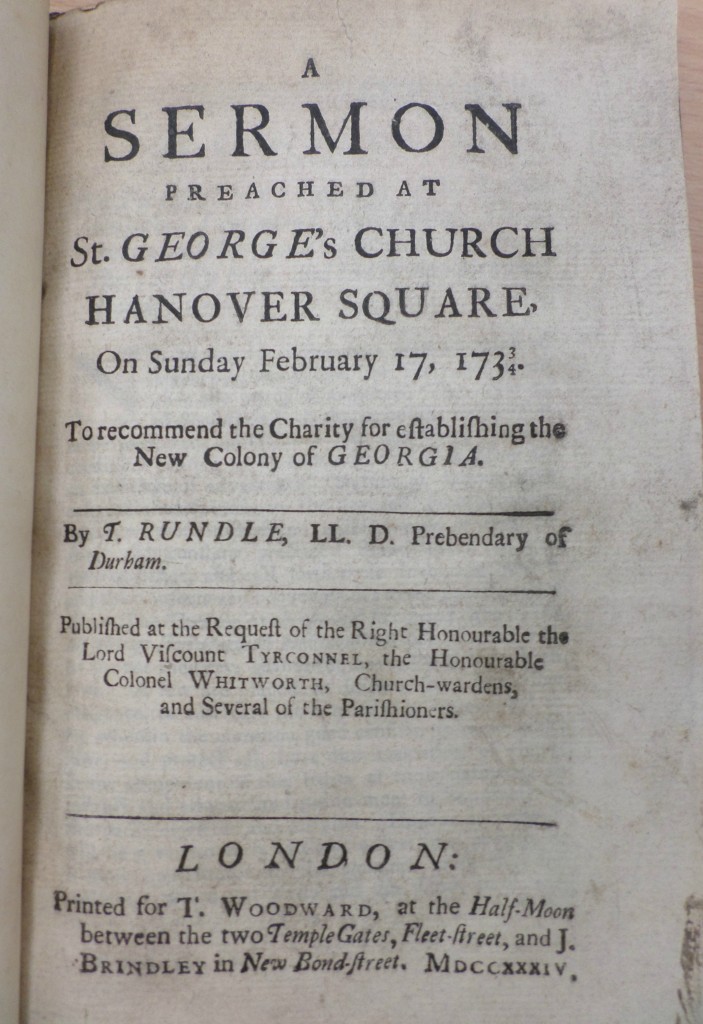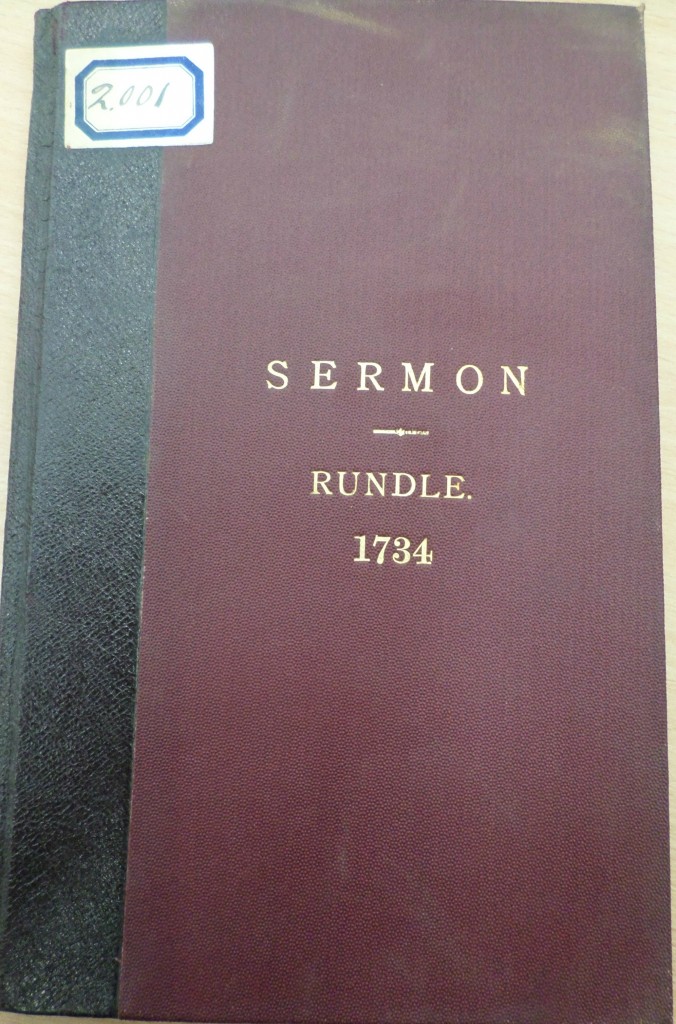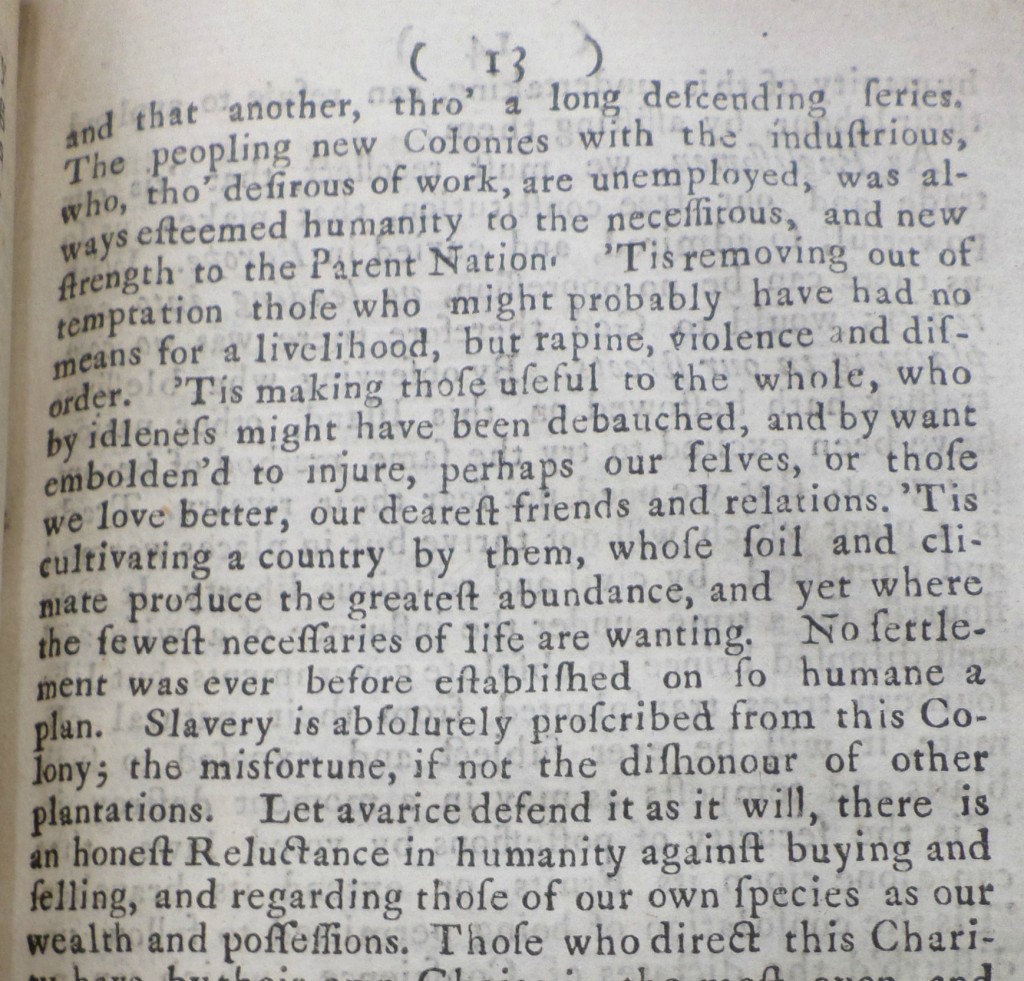
Title: A sermon preached at St George’s Church, Hanover Square, on Sunday February 17 1733/4 to recommend the charity for establishing the new colony of Georgia
Author: Thomas Rundle
Published: 1734
Location: 252.03 FM 2001

What is this Book About?
This book is based on the sermon delivered by Thomas Rundle at St Georges in Mayfair, London, in 1734.
In it he requests that his audience be charitable to the establishment of the Colony in Georgia. Rundle argues that they should do this because it is their duty “as you are Men and Englishmen, Protestants and Christians.”
He explains the place of the poor and the wealthy and argues that poverty is an “advantage to all” that “we are form’d with natures to delight in doing good”
Giving to this charitable cause will not only help the colonists, who will “grow silk, cotton, flax and naval stores, dying-drugs and medicine, wine and oil, and all the fruits that require warmer suns” but these raw materials will help maintain in honest industry the people at home where they will be “fashioned thro’ numerous arts into use.”
The Colony of Georgia received a charter from the King in June 1732. The founders set sail from Gravesend in Nov 1732 and arrived at Charlestown on 13th Jan 1733.
Why Does This Book Matter?
This 20 page book has a lot to interest the reader, including some similes and metaphors based on Newtonian science, which place it firmly in its time (Newton died in 1727, just 7 years before this sermon was delivered) and from which we can infer a great deal about Thomas Rundle and the audience he was addressing.
There are many reasons why this book matters. There are some interesting comments on social class. At some points in his sermon Rundle writes as though the settlers are part of a criminal class “This removing out of temptation those who might probably have had no means for a livelihood, but rapine, violence and disorder.”
But this book also matters because of the insight it offers into the politics of colonisation and African slavery in 1734.
The influence of settlers on native Americans is obviously a hot topic:“ ‘tis a prophane observation, often repeated in conversation that introducing our Religion among the Indians will disturb these well meaning people, and destroy their simplicity of manners and their innocence”
And on slavery Rundle says “No settlement was ever established on so humane a plan. Slavery is absolutely proscribed from this Colony; the misfortune, if not the dishonour of other plantations.”
Unfortunately, when the founder Oglethorpe left the colony there was growing pressure to have the ban on slavery lifted and the Trustees of Georgia asked the House of Commons to replace the Act banning slavery. A new Act, permitting slavery came into force on Jan 1st 1751.

Who Would Enjoy This Book?
This book is a short and interesting read for anyone. It might appeal particularly to those with an interest in the history of American colonisation and African slavery.
Melanie Manwaring-McKay
